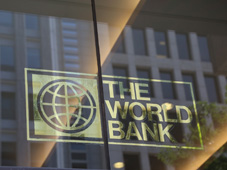
WB: land leasing can solve IDPs economic problems in Georgia
By Messenger Staff
Wednesday, May 11
The World Bank (WB) has released an article dedicated to the problems of Georgia’s Internally Displaced Persons (IDPs).
Teleased last week, the article said Georgia had about 270,000 IDPs from the de-facto regions of Abkhazia and Tskhinvali (South Ossetia), and nearly 80% of the people were unemployed.
The WB stated many IDPs suffered from lack of access to sufficient land for pursuing agricultural livelihoods when land leasing could be an outcome to cope with the IDPs economic hardship.
The article also provided key issues that should be addressed when designing a land-leasing program for IDPs. The topics were :
A land leasing program should be open for participation by rural households generally, not just IDPs. A program for both groups would increase support for it;
The program should be implemented at the community level, with 2-3 adjacent communities working together. Support from the municipality will be essential;
The biggest challenge to program success is going to be finding land for leasing. Effective public outreach will be important for meeting this challenge;
Most agricultural land is not registered, which will make it harder to identify owners and could lead to lease enforcement problems if conflicts arise. Parties to leases could either simply acknowledge these risks when signing leases, or the land could be registered before lease signature; and
The program should require that land leases be concluded in writing. Registration of leases should be voluntary.
The WB said that based on the recommendations above, the land leasing pilot was now being implemented in targeted villages with large concentrations of IDPs in the Georgian municipalities of eastern Gori and western Zugdidi.
The pilot was being implemented by a consortium consisting of the Danish Refugee Council and Charity Humanitarian Centre "Abkhazeti," a local NGO with more than 20 years of experience working on IDP livelihoods in Georgia.
When it came to implementation the pilot project it was guided by an intra-governmental Advisory Committee consisting of relevant Ministries and State Agencies.
“The results, expected in June 2016, will allow for a deeper understanding of current land leasing practices in rural Georgia and potential entry-points for increasing and formalizing land leasing practices to improve food security and income opportunities for the most vulnerable population, including IDPs,” the article said.


